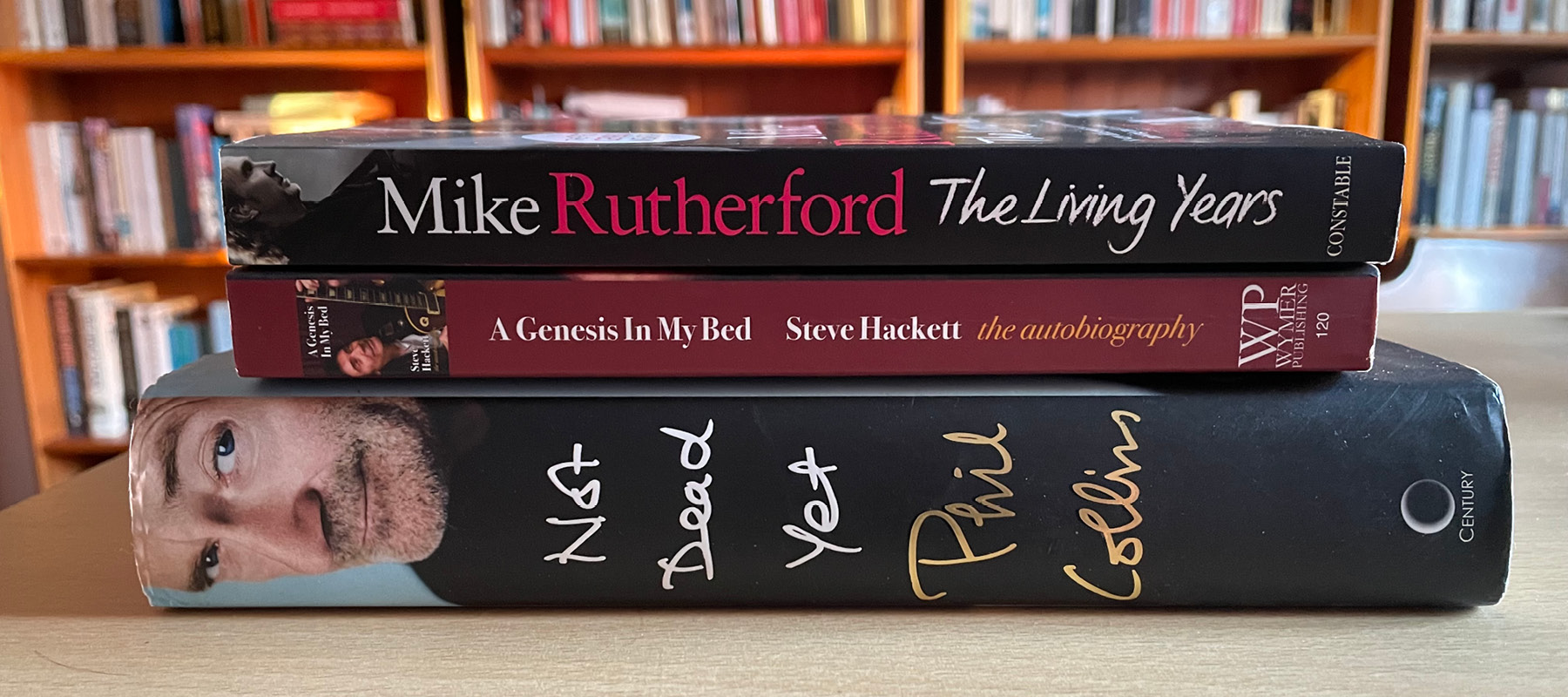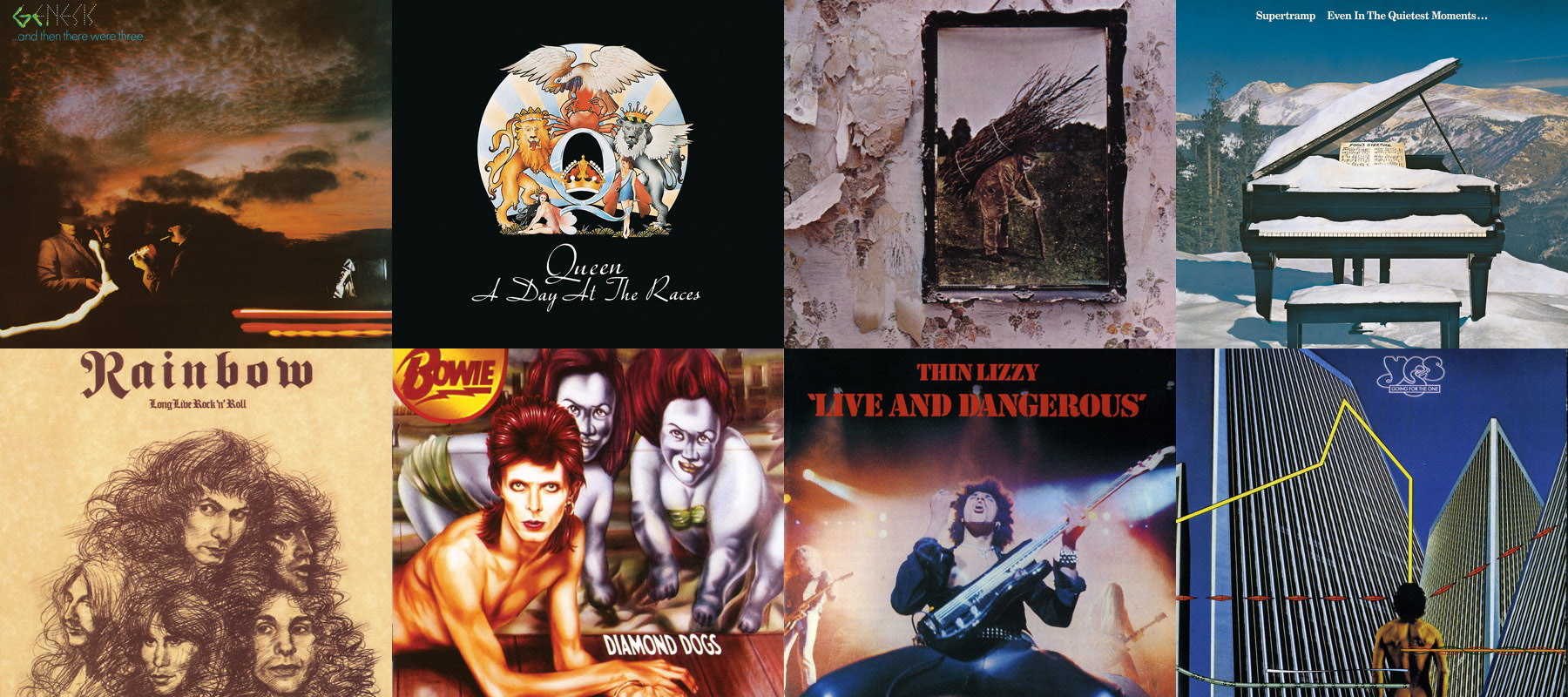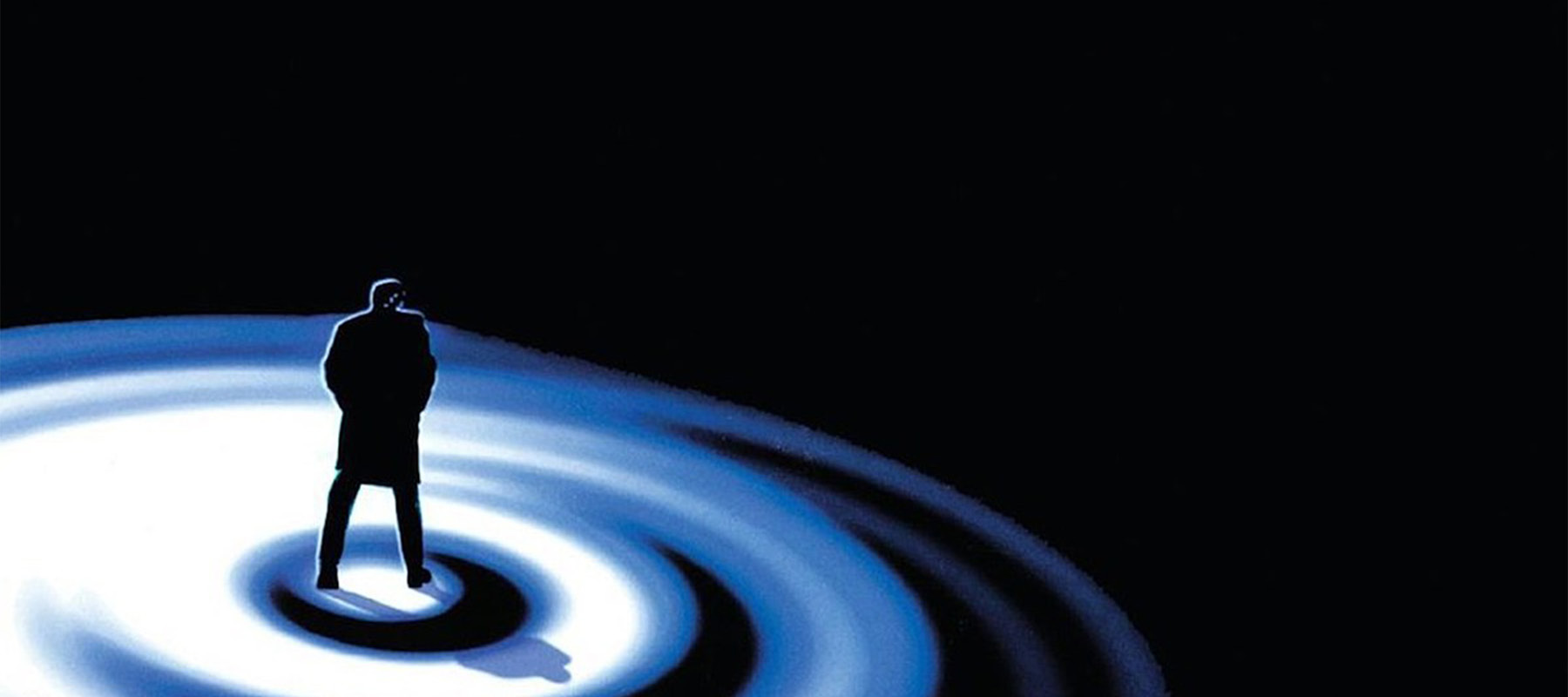Genesis Autobiographies

Autobiographies and memoirs are not, strictly speaking, the same. Timespan, for one thing. Autobiography suggests a life story starting from birth whereas memoirs are more limited in scope, perhaps covering a particular period of time or set of circumstances (like a politician’s time in office). However, the two words are often used interchangeably, and indeed I often find myself using the words ‘memoir’ and ‘memoirs’ as shorthand for ‘autobiography’. Also, I have assumed that the subject of each Genesis autobiography discussed below actually wrote every word of it – Phil (not a ghost-writer or Phil assisted by a ghost-writer) wrote Not Dead Yet, for example – unless something gives me cause to think otherwise.
On any given day in, say, 1979 or 1980 there was a decent chance that my local library’s copy of I Know What I Like, Armando Gallo’s lavishly illustrated history of Genesis, was stashed away in my bedroom rather than propped up on the library’s shelves patiently awaiting its next borrower. I Know What I Like was my go-to guide as I immersed myself in the collection of classic Genesis albums from the 70s that started with Trespass and ended with …And Then There Were Three. (The book itself closed with the band beginning rehearsals for what became the Duke album.)
I have never much bothered with books about music and musicians (other than Queen-related stuff) and for a long time I had nothing on my shelves about Genesis. I didn’t, for example, buy the hefty (and heftily priced) Chapter and Verse book that came out in 2007. A great title and an even greater selection of photos (I borrowed my friend Dave’s copy), but a publication that carried the Genesis imprimatur – it was part of the official Turn It On Again reunion tour package of promotional goodies – was not really the kind of history that interested me much.
I did pick up a cheap copy of Genesis: A Live Guide 1969 to 1975 by Paul Russell that was first published in 2004. I was downloading a lot of bootlegs at the time, and this was a thoroughly researched analysis of and commentary on more than 160 live shows spanning the Gabriel years (check out my own Genesis bootleg history blog series). But, like all such books, its focus was a narrow and specific one, the hardcore fan its target audience.
I am not generally a reader of celebrity biographies full stop, still less celebrity autobiographies. It was a YouTube video of Phil Collins singing Against All Odds on the Jonathan Ross Show in 2016 that first piqued my interest in reading Phil’s effort. The performance was heartbreaking to watch, and yet – and therefore – compulsive viewing.
I was already vaguely aware that Phil had struggled with his health in recent years and that he was unable to play drums any more – shocking news in itself. He was a wonderful drummer. We’re all familiar with his trademark ‘gated’ drum sound that defined 80s pop – just think gorilla and drum kit – but his busy and inventive drumming style was a key ingredient of the Genesis magic in the early days. There is quite a bit of footage of Gabriel-era Genesis on YouTube but – annoyingly – the camera focuses for much of the time on the singer and not the other members of the band. So if you aren’t familiar with it already, I recommend watching the Collins–Bruford combination at work in the footage of Genesis playing Los Endos on the A Trick of the Tail tour in 1976.
Back to 2016 and Phil was putting his frailties on show for all to see. It reminded me of the first time I watched Queen’s These Are the Days of Our Lives video. And to choose Against All Odds – probably my favourite Collins solo song – a vocal he clearly could no longer do full justice to. A quick search brought up footage of interviews from 2016 – with Phil sometimes coming on to the TV set with a walking stick – to promote his new autobiography. He was open, honest – jaw-droppingly so at times – and didn’t pull any punches.
That’s why I picked up a copy of his book Not Dead Yet when I saw it in a charity shop. It was the end of 2019, a few months before the first Covid lockdown. Over the following two years I bought autobiographies by Steve Hackett and Mike Rutherford too. The rest of this blog is about those three books. To the best of my knowledge, Peter Gabriel and Tony Banks have not written anything autobiographical. I do have a second-hand but suspiciously pristine-looking copy of a biography of Peter (Without Frontiers: The Life and Music of Peter Gabriel by Daryl Easlea), but I doubt I will be turning to it any time soon. Although Peter is probably the most artistically creative and experimental member of the classic Genesis line-up (with Steve a close second, I would say), his musical journey is actually the one that interests me least.
Not Dead Yet by Phil Collins
One of the reasons I don’t read many autobiographies is because it is the author (the book’s subject) who is crafting this version of the story of their life – deliberately and purposefully shaping the narrative through their editorial decisions about what to include and what to omit – and you (the reader) who is under their control. That’s why I found myself immediately drawn to the put-it-all-out-there honesty of Not Dead Yet. If an author – Phil, in this case – writes about cheating on other halves (eg page 276 of the hardback edition: “I know that recounting this makes me sound like a right shallow bastard”) or alcoholism putting them at death’s door, they are unlikely to be lying about, sugar-coating or omitting other embarrassing or unflattering details of their life story.
I didn’t much like the 80s iteration of Phil Collins and, to be fair to Phil, I don’t think he does either. The Phil Collins who wrote Not Dead Yet is far more to my liking – chatty (you can imagine him saying much of this stuff in conversation), funny, self-deprecating and, above all, honest. Here’s one at random: we learn on page 136 that the lyrics of Invisible Touch, written in 1985–86 when he was married to his second wife, were actually about his first wife.
A couple of chapters are built around specific events – one is about how he almost got to play on a George Harrison solo album in 1970 – but on the whole it is a white-knuckle ride on the rollercoaster that was Phil’s life, especially once his solo career took off in the 80s and he became for a time one of the biggest pop stars on the planet.
We go from In the Air Tonight (his first solo single) to the Phil Collins Big Band via Live Aid and from Buster to Tarzan by way of Miami Vice. The main themes are work and family, and there is a lot – a lot – of husband-and-father stuff. If nothing else, reading Not Dead Yet will enable you to make your own mind up about whether Phil really is, as he says (on page 6) “a romantic who believes, hopes, that the union of marriage is something to cherish and last”.
But I read Not Dead Yet primarily for what Phil says about Genesis, so it was the how-we-made-this-album bits and the life-on-the-road anecdotes that interested me the most. In my simplistic view of things, I have always (and completely unfairly) blamed Phil for Genesis’s lurch to highly commercial, chart-chasing pop-rock in the 80s, so I was delighted that he doesn’t distance himself at all from classic Genesis – even agreeing that Supper’s Ready is the band’s magnum opus.
I got the distinct impression from reading the book that Phil was particularly close to Peter – before and after 1975 when Peter left the band – so it’s perhaps no surprise that, of all their output, it’s probably the Lamb album and tour that gets the most space, though, alas, the entirety of the ‘classic’ Genesis years – from Phil and Steve Hackett joining the band in 1970–71 to Steve leaving during the mixing of Seconds Out in 1977 – is covered in just 65 pages or so (out of a total of 400+ pages).
A Genesis in My Bed by Steve Hackett
These days I count myself as a huge fan of Steve’s solo work. I bought his (excellent) third album, Spectral Mornings, way back when it was first released in 1979, having been enchanted by the song Every Day. But I have only really got to know his solo stuff in the last few years, taking a chance on his 2017 album, The Night Siren, after which I picked up a cheap collection of five of his mid-career releases. His recent output – in terms of both quantity and quality – is phenomenal. In fact, unlike most late-in-their-career artists, he is currently producing the best music of his life.
Steve has always been adept at channelling the many and varied cultural experiences and insights arising from his worldwide travels into both his music and lyrics, ably assisted by his (now) wife Jo. However, though his albums are always lyrically interesting, he isn’t a natural wordsmith – which is partly what makes A Genesis in My Bed, published in 2020, an uncomfortable read, for this fan anyway.
And that’s a shame – because he has an interesting story to tell, one that frankly I was not expecting. Periods of drink, drugs, and darkness and depression – who would have thought it of the bloke sitting quietly and undemonstratively stage-right on those early Genesis tours, shielded behind the heavy-rimmed glasses, the thick, black beard and the dark clothes. Steve’s choice of book title – a reference to, well, that would be telling – is in itself revealing.
The writing isn’t dreadful. Here’s his description of the postwar London of his childhood, for example:
Crumbling pillars adorned sad facades, appearing ripe for slum clearance. Together those houses resembled rows of rotting teeth with the odd gaping black hole of a bombsite to completely ruin any semblance of a smile.
However, in all likelihood the book is more or less a DIY effort – and frankly it shows. We can forgive the occasional typo, tautology and other minor errors; I have yet to read a book that is completely error-free – and what I write certainly isn’t. It’s other stuff that is infuriating. The book cries out for a professional’s guiding hand. I can’t imagine for a moment that Steve would allow his music to be released without an appropriate level of quality control.
Aaaagh! Exclamation marks litter almost every page!!!
Aaaagh! Paragraph after paragraph ends with the dreaded three dots (ellipsis), like a ghastly case of measles…
And then there is the constant metaphor overload. Aaaagh! Take this run of sentences, for example:
A whole world of possibilities was revealing itself, starting as a trickle and becoming a flood. Once I’d opened Pandora’s Box there was no stopping me. During the tour, the ideas continued to germinate.
A good editor would also have helped organise the material: at one point he briefly covers the A Trick of the Tail period (an important moment, as it was the first album and tour without Peter), then moves on to Wind and Wuthering, and then returns to discussing A Trick of the Tail again.
I was certainly interested to read his account of his years in the band, his decision to leave and his ongoing relationship with Tony, Mike and Phil. Just like Phil, Steve clearly felt extremely close to Peter. The most barbed comment is aimed in Mike’s direction – he claims that in the 2014 Together and Apart BBC documentary Mike had asked for more focus on his own solo career at the expense of Steve’s – and he also makes clear that, though open to taking part in the 2007 reunion tour, an invite was never on the cards.
Another problem with the book is what is left out, relating to the years 1987 to 2007. We are informed in an afterword – presumably published only in the paperback edition and not in the original hardback – that his career “felt like swimming uphill and it was an emotionally traumatic period for me as well”. Why, then, write an autobiography, one wonders? There is much, we are told, that he was not allowed to write about for legal reasons…
The Living Years by Mike Rutherford
Mike’s book is the best of the three, certainly in terms of the writing. He is ex-public school, of course, so it’s reasonable to expect him to be able to string a few coherent sentences together. All three books are eminently readable and they all have good tales to tell but, compared with Steve’s book in particular, Mike’s writing is much more organised and controlled. Where Steve assails the reader with exclamation marks and ellipses, Mike is considerably more reserved and understated, his line in humour deadpan and dry.
This is typical. It’s a description of Island Studios where the band were recording The Lamb Lies Down on Broadway:
There were two studios: a nice big one upstairs and a cheap, depressing one downstairs with chocolate-brown shagpile on the walls. We weren’t upstairs.
Ironically, at the foot of that very page (page 148 of the paperback edition) Mike uses an ellipsis – “but at that point I decided I needed some time out…” – but in this case I would say it’s warranted. It’s a nice way to lead into whatever the some-time-out stuff was.
The book’s title is of course a reference to the Mike + the Mechanics song about the death of a father. It’s a title well chosen. Mike’s at times difficult relationship with his father – a senior naval officer – is a thread that runs through the whole book. Extracts from his father’s unpublished memoirs (he died in 1986 but they were only discovered after Mike’s mother’s death in 1992 and were much later presented to Mike in bound form by his sons as a Christmas present, presumably the trigger for him to write his own book) crop up regularly, often judiciously chosen as counterpoints to Mike’s own career.
I liked the honesty in the book. At times, he can be quite cutting, not least about Genesis members past and present (though it may equally well just be his sense of humour). To take just two of many examples, we learn that Steve didn’t pay Mike and Phil for their contributions to Steve’s first solo album, and that Tony will never have a hit single because he “never did understand how to make words flow”. In fact, there are numerous barbs about Tony, presumably because they have known each other so long. “I think to this day Tony thinks his voice is better than it is” is one. I assume they are all in-jokes.
One thing that annoys me about music biographies generally is that the material tends to be weighted towards the early years. Once the said performer(s) hit(s) the big time, the detail seems to thin out – as if it’s all in the public domain already or there isn’t really much of interest to tell. In Philip Norman’s Shout! The True Story of the Beatles we are told on page 178 of a 423-page book that Love Me Do (the first single) was released on 4 October 1962. We reach the first Smiths gig on page 149 of Johnny Rogan’s 303-page Morrissey & Marr: The Severed Alliance.
(Note also how stars seem far more willing to write about the early years of grinding poverty – I’ve paid my dues, to coin a phrase – than about the years of fabulous wealth. One minute it’s all battered vans to gigs and poky hotel rooms and the next we’re headlining Knebworth.)
Mike’s book is for the most part more balanced than many I have read, though he says surprisingly little about Foxtrot – a big breakthrough album for Genesis – and Wind and Wuthering, which, along with Selling England by the Pound (an album Mike doesn’t hold in as high a regard as I do) is probably my favourite Genesis album.
And then suddenly it all peters out. Thirty pages from the end of the book and we have reached the Invisible Touch album and tour in 1986–87. It’s the band at the peak of their worldwide popularity. It’s also when Mike’s father died, and so it’s the memoir’s natural end-point, given the way that Mike has crafted it. But real life doesn’t follow artificial story arcs.
We get a handful of pages about the 1992 We Can’t Dance period. A whopping two paragraphs about Phil’s decision to leave. Ditto the Calling All Stations period with Ray Wilson. Less than a page…really? Talk about damning with faint praise. A little bit (but not much) more than this about the 2007 Turn It On Again reunion tour. And, well, that’s it. A hugely anti-climactic feel at the end – not unlike the Abacab album, in fact, which finishes with the underwhelming and downbeat Another Record.
Some of the content above first appeared in a regular books, TV and films blog I wrote between 2020 and 2022.






You might like to amend your final paragraph. Ray Winston has done many things but never to my knowledge sang with Genesis. It was Ray Wilson on Calling All Stations. Thanks for your interesting blog.
Haha! Brilliant! Thanks for alerting me to the error.